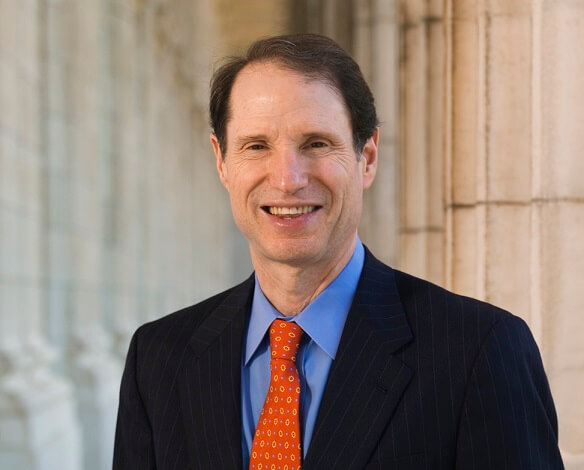U.S. Sen. Ron Wyden, D-Ore., along with 25 other Senate colleagues, has introduced the Clean Energy for America Act, which would consolidate the current 44 energy incentives into three technology-neutral provisions that encourage clean electricity, clean transportation and energy efficiency.
According to Wyden, ranking member of the Senate Finance Committee, the bill would overhaul the federal tax code, which is currently “woefully inadequate to address today’s energy challenges,” he says.
“It’s a hodgepodge of temporary credits, anchored by advantages for Big Oil, that don’t effectively move us toward the goals of reducing carbon emissions or lowering electricity bills for American families,” Wyden continues. “It’s time to kick America’s carbon habit – and that means a complete transformation of the tax code to reward clean electricity, transportation and conservation.”
To encourage clean transportation fuel, the bill would provide a tax credit for fuels that are at least 25% cleaner than the current U.S. nationwide average, with a maximum credit of $1 per gallon available for fuels with zero-carbon emissions. The level of the incentive depends on the lifecycle carbon emissions of the fuel. This takes into account the “well to wheel” emissions profile, from production of the feedstock to its use in a vehicle. The bill would also eliminate the per-manufacturer cap on the tax credit for electric vehicles (EVs) and extend the credit for fuel cell EVs.
To incentivize clean electricity, the bill would provide a production tax credit (PTC) or investment tax credit (ITC) to facilities that are at least 35% cleaner than average. It would be available as either a PTC with a maximum of 2.4 cents per kilowatt-hour or an ITC of up to 30%.
Further, to incentivize energy conservation, the bill would provide a performance-based tax credit for energy-efficient homes and a tax deduction for energy-efficient commercial buildings. The value of the tax credit would increase as more energy is conserved.
“The transportation sector is the largest contributor to air pollution today, so we need smart policies to reduce this pollution and clean the air for all Americans,” states Joel Levin, executive director of Plug In America. “Electric vehicles are the solution to reducing air pollution, and modifying the EV tax credit to work for more drivers for a longer period of time is one of these smart policies. We’re excited that the Clean Energy for America Act includes this critical policy.”
“On behalf of the members of the Renewable Fuels Association (RFA), we applaud Ranking Member Wyden for his efforts in reforming and improving the current tax incentives for biofuels,” RFA says in a statement. “Today, our nation’s biofuel producers continue to struggle with the commercialization of advanced and second-generation biofuel technologies as a result of a tax system that continues to favor incumbent and finite, carbon-intensive energy sources like oil and gas and fails to provide a long-term solution for incentivizing the production and commercialization of new, clean-burning biofuel technologies.
“Without a long-term tax policy solution, the biofuels industry will continue to face challenges in securing critical investment and developing efficiencies to help it reduce costs and compete against other energy sources that have received, and continue to receive, a lifetime of valuable government and tax support,” the group continues. “We believe the Clean Energy for America Act is a step in the right direction.”
The bill is co-sponsored by U.S. Sens. Chuck Schumer, D-N.Y.; Debbie Stabenow, D-Mich.; Maria Cantwell, D-Wash.; Robert Menendez, D-N.J.; Tom Carper, D-Del.; Ben Cardin, D-Md.; Michael Bennet, D-Colo.; Sheldon Whitehouse, D-R.I.; Maggie Hassan, D-N.H.; Catherine Cortez Masto, D-Nev.; Dianne Feinstein, D-Calif.; Dick Durbin, D-Ill.; Amy Klobuchar, D-Minn.; Jeanne Shaheen, D-N.H.; Kirsten Gillibrand, D-N.Y.; Richard Blumenthal, D-Conn.; Brian Schatz, D-Hawaii; Mazie Hirono, D-Hawaii; Martin Heinrich, D-N.M.; Angus King, I-Maine; Tim Kaine, D-Va.; Cory Booker, D-N.J.; Gary Peters, D-Mich.; Chris Van Hollen, D-Md.; and Tina Smith, D-Minn.
“Our tax code should be encouraging the deployment of all clean energy technologies that are good for public health and our climate,” says Carper, top Democrat on the Senate Environment and Public Works Committee. “Instead, however, the tax code we have today incentivizes the very sources that fuel climate change and make our air harder to breathe. Too often, the incentives that actually push us in the right direction expire too quickly or erratically, making it difficult for business leaders to plan long-term investments.
“The Clean Energy for America Act will eliminate outdated incentives for fossil fuels and, instead, provide long-term, technology-neutral incentives for the investment and production of electricity and vehicles that help drive down our country’s greenhouse-gas emissions.”







